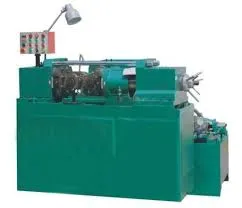
-
 Afrikaans
Afrikaans -
 Albanian
Albanian -
 Amharic
Amharic -
 Arabic
Arabic -
 Armenian
Armenian -
 Azerbaijani
Azerbaijani -
 Basque
Basque -
 Belarusian
Belarusian -
 Bengali
Bengali -
 Bosnian
Bosnian -
 Bulgarian
Bulgarian -
 Catalan
Catalan -
 Cebuano
Cebuano -
 Corsican
Corsican -
 Croatian
Croatian -
 Czech
Czech -
 Danish
Danish -
 Dutch
Dutch -
 English
English -
 Esperanto
Esperanto -
 Estonian
Estonian -
 Finnish
Finnish -
 French
French -
 Frisian
Frisian -
 Galician
Galician -
 Georgian
Georgian -
 German
German -
 Greek
Greek -
 Gujarati
Gujarati -
 Haitian Creole
Haitian Creole -
 hausa
hausa -
 hawaiian
hawaiian -
 Hebrew
Hebrew -
 Hindi
Hindi -
 Miao
Miao -
 Hungarian
Hungarian -
 Icelandic
Icelandic -
 igbo
igbo -
 Indonesian
Indonesian -
 irish
irish -
 Italian
Italian -
 Japanese
Japanese -
 Javanese
Javanese -
 Kannada
Kannada -
 kazakh
kazakh -
 Khmer
Khmer -
 Rwandese
Rwandese -
 Korean
Korean -
 Kurdish
Kurdish -
 Kyrgyz
Kyrgyz -
 Lao
Lao -
 Latin
Latin -
 Latvian
Latvian -
 Lithuanian
Lithuanian -
 Luxembourgish
Luxembourgish -
 Macedonian
Macedonian -
 Malgashi
Malgashi -
 Malay
Malay -
 Malayalam
Malayalam -
 Maltese
Maltese -
 Maori
Maori -
 Marathi
Marathi -
 Mongolian
Mongolian -
 Myanmar
Myanmar -
 Nepali
Nepali -
 Norwegian
Norwegian -
 Norwegian
Norwegian -
 Occitan
Occitan -
 Pashto
Pashto -
 Persian
Persian -
 Polish
Polish -
 Portuguese
Portuguese -
 Punjabi
Punjabi -
 Romanian
Romanian -
 Russian
Russian -
 Samoan
Samoan -
 Scottish Gaelic
Scottish Gaelic -
 Serbian
Serbian -
 Sesotho
Sesotho -
 Shona
Shona -
 Sindhi
Sindhi -
 Sinhala
Sinhala -
 Slovak
Slovak -
 Slovenian
Slovenian -
 Somali
Somali -
 Spanish
Spanish -
 Sundanese
Sundanese -
 Swahili
Swahili -
 Swedish
Swedish -
 Tagalog
Tagalog -
 Tajik
Tajik -
 Tamil
Tamil -
 Tatar
Tatar -
 Telugu
Telugu -
 Thai
Thai -
 Turkish
Turkish -
 Turkmen
Turkmen -
 Ukrainian
Ukrainian -
 Urdu
Urdu -
 Uighur
Uighur -
 Uzbek
Uzbek -
 Vietnamese
Vietnamese -
 Welsh
Welsh -
 Bantu
Bantu -
 Yiddish
Yiddish -
 Yoruba
Yoruba -
 Zulu
Zulu
high speed thread rolling machine product
High-Speed Thread Rolling Machines Revolutionizing the Manufacturing Industry
In the modern manufacturing landscape, efficiency and precision are paramount. Among the various technologies that have emerged to enhance production processes, high-speed thread rolling machines stand out for their ability to produce durable threaded components quickly and accurately. These machines are essential in a variety of industries, including automotive, aerospace, electronics, and construction, where threaded fasteners are crucial for ensuring secure connections.
Thread rolling, a process that creates threads by deforming the material rather than cutting it, offers several advantages over traditional machining methods. High-speed thread rolling machines utilize advanced mechanisms that allow for rapid production while maintaining consistent quality. This method of forming threads results in stronger components due to the cold working process, which enhances the material's grain structure and surface finish. The result is a product that often exhibits better tensile strength, fatigue resistance, and overall performance than its cut-thread counterparts.
One of the key features of high-speed thread rolling machines is their ability to process a wide range of materials. This versatility is particularly important in industries that require the use of different alloys and metals. High-speed machines are designed to handle materials such as steel, stainless steel, aluminum, and even certain plastics, allowing manufacturers to meet diverse production needs without investing in multiple types of machinery.
high speed thread rolling machine product

Moreover, these machines are engineered for maximum efficiency. With the capability to produce thousands of parts per hour, high-speed thread rolling machines significantly reduce manufacturing costs and lead times. This rapid throughput is facilitated by advanced automation technologies that streamline the operation and minimize the need for manual intervention. As a result, manufacturers can respond more swiftly to market demands, enhancing their competitiveness in an increasingly dynamic environment.
Additionally, high-speed thread rolling machines are equipped with sophisticated control systems that ensure precision and repeatability. These systems include features such as digital readouts, programmable settings, and real-time monitoring, allowing operators to maintain tight tolerances and high-quality standards. The integration of computer numerical control (CNC) technology further enhances the capabilities of these machines, enabling them to produce complex threaded patterns and configurations with ease.
The environmental aspect of manufacturing is also becoming increasingly vital, and high-speed thread rolling machines contribute positively in this regard. The thread rolling process generates minimal waste compared to traditional cutting methods, as it utilizes the entire cross-section of the material being processed. This not only conserves raw materials but also reduces the amount of scrap generated, aligning with the industry's push towards sustainability.
In conclusion, high-speed thread rolling machines represent a significant advancement in manufacturing technology, offering remarkable efficiency, versatility, and precision. By improving the quality and performance of threaded components, these machines are playing a crucial role in the evolution of various industries. As technology continues to evolve, the capabilities of high-speed thread rolling machines are expected to expand further, making them indispensable tools for manufacturers aiming to enhance productivity and maintain competitive advantages in the global market. The future of manufacturing looks promising, with high-speed thread rolling machines leading the way toward innovative and efficient production methods.
